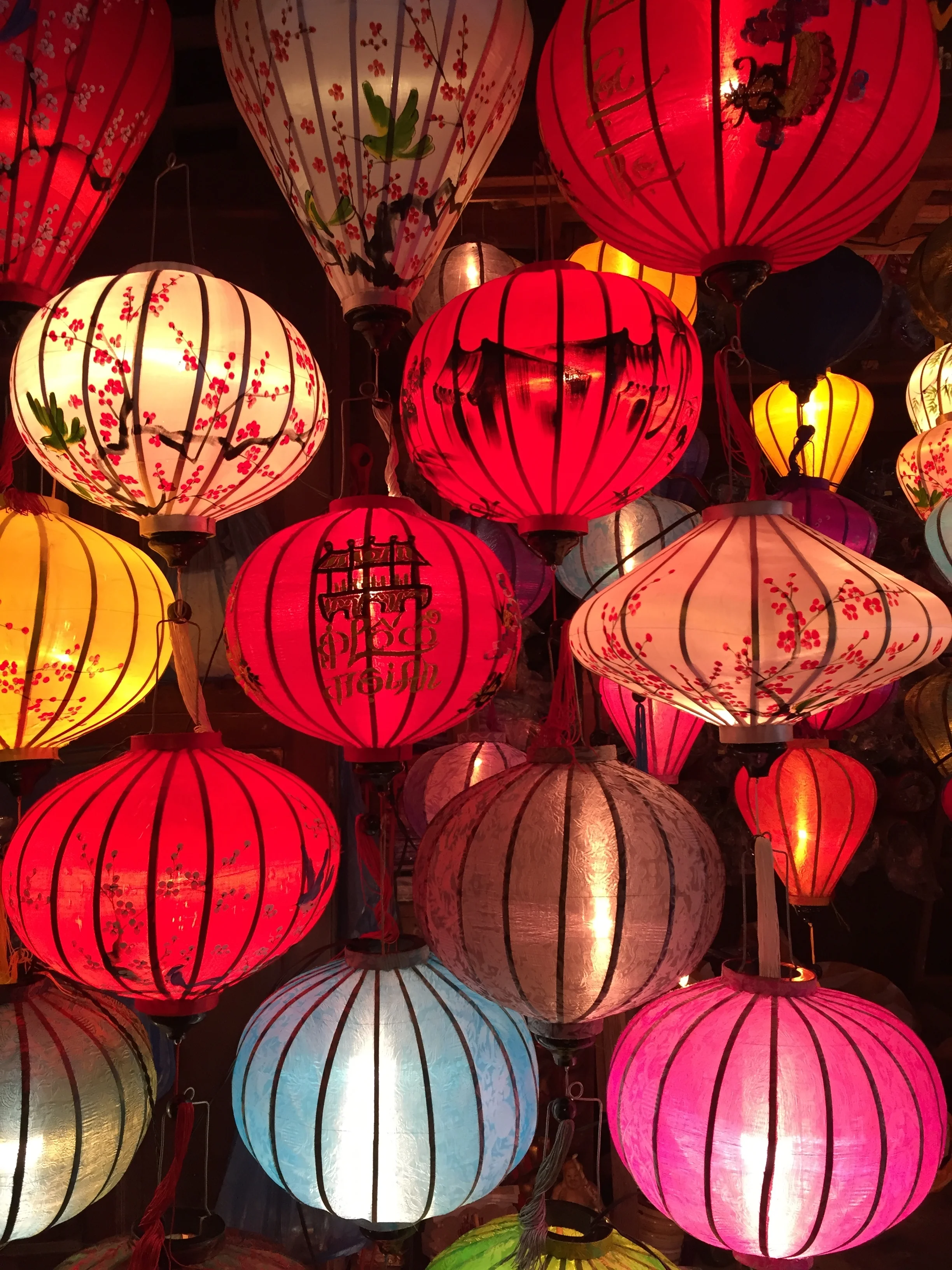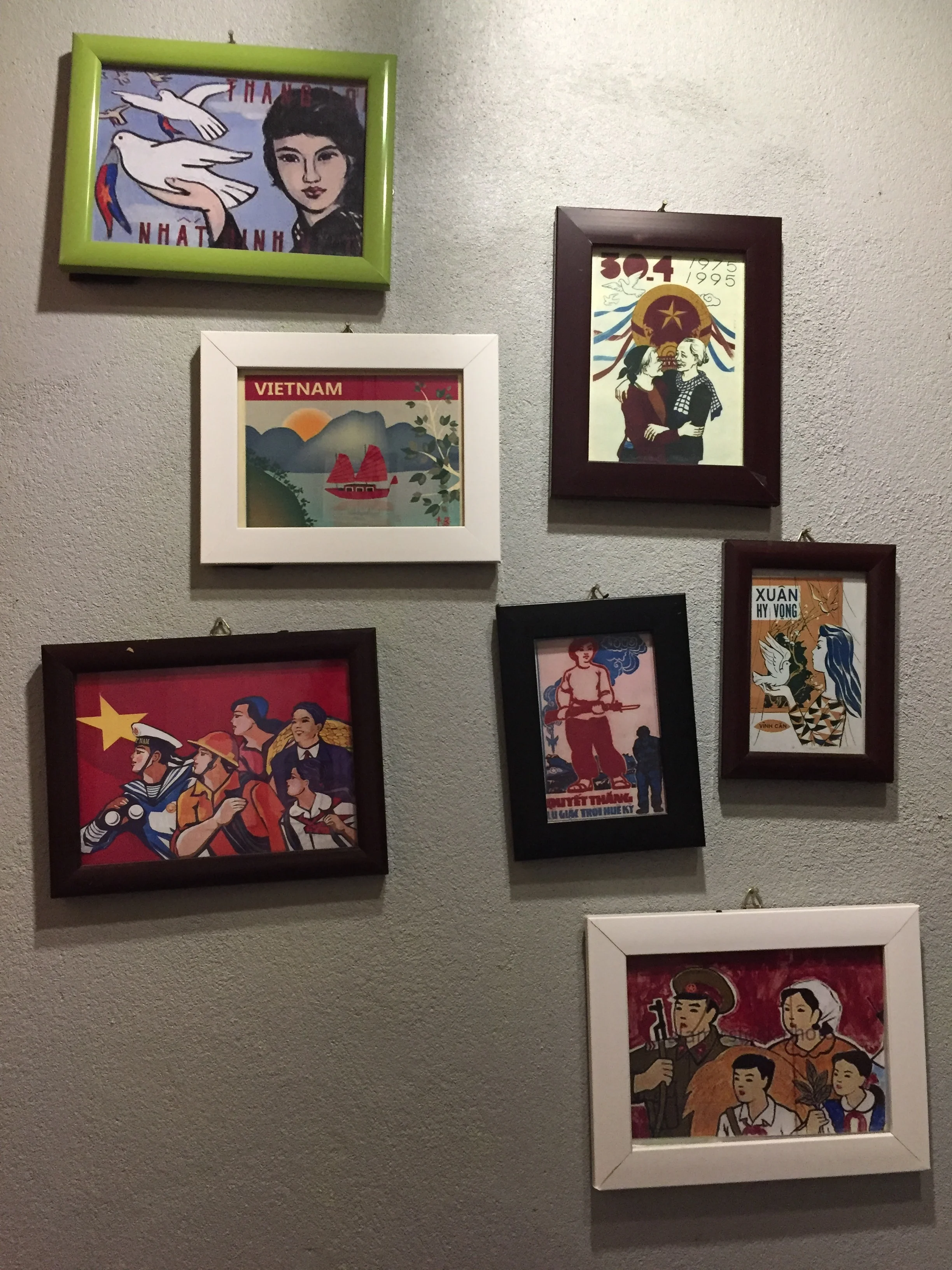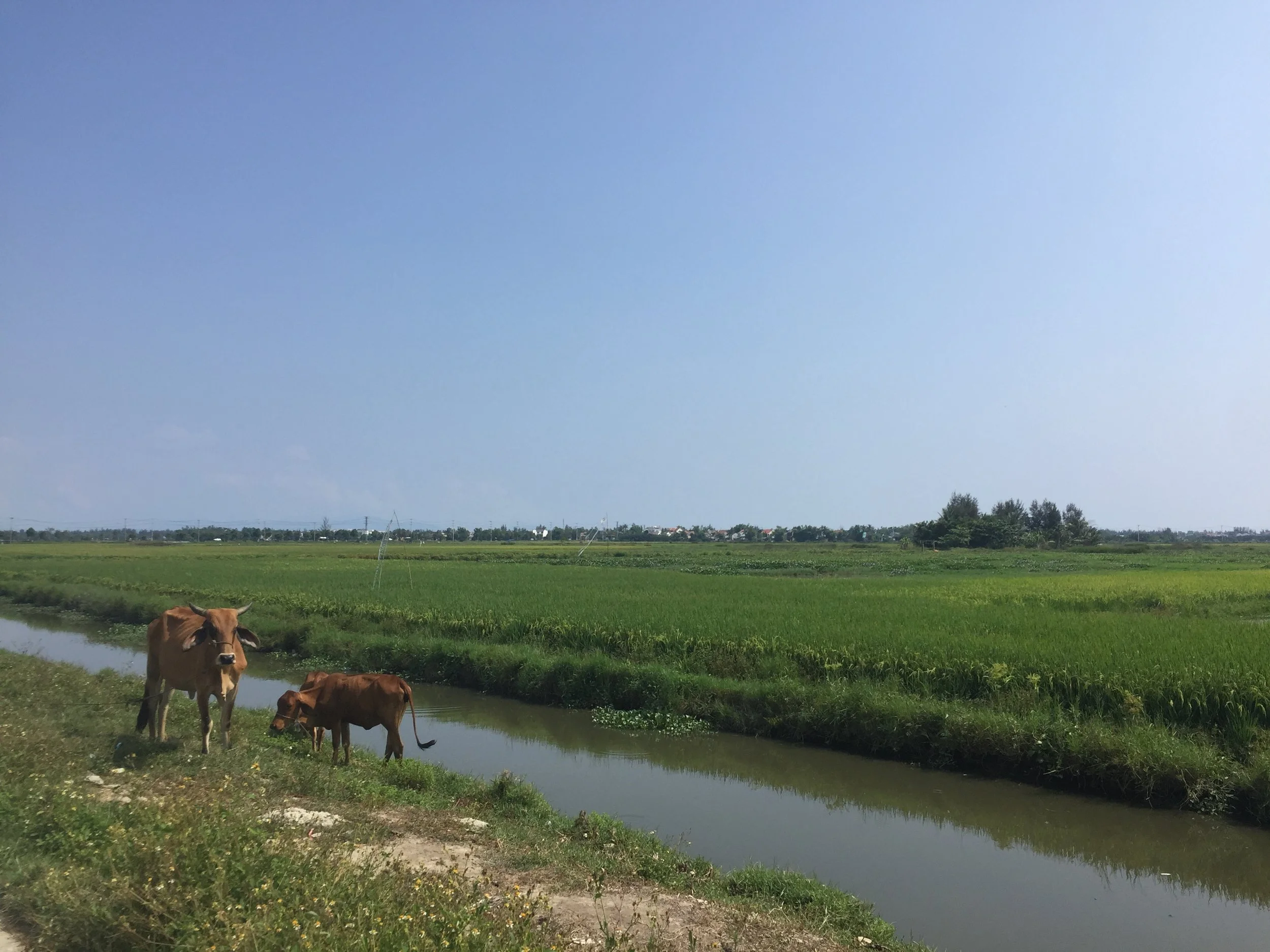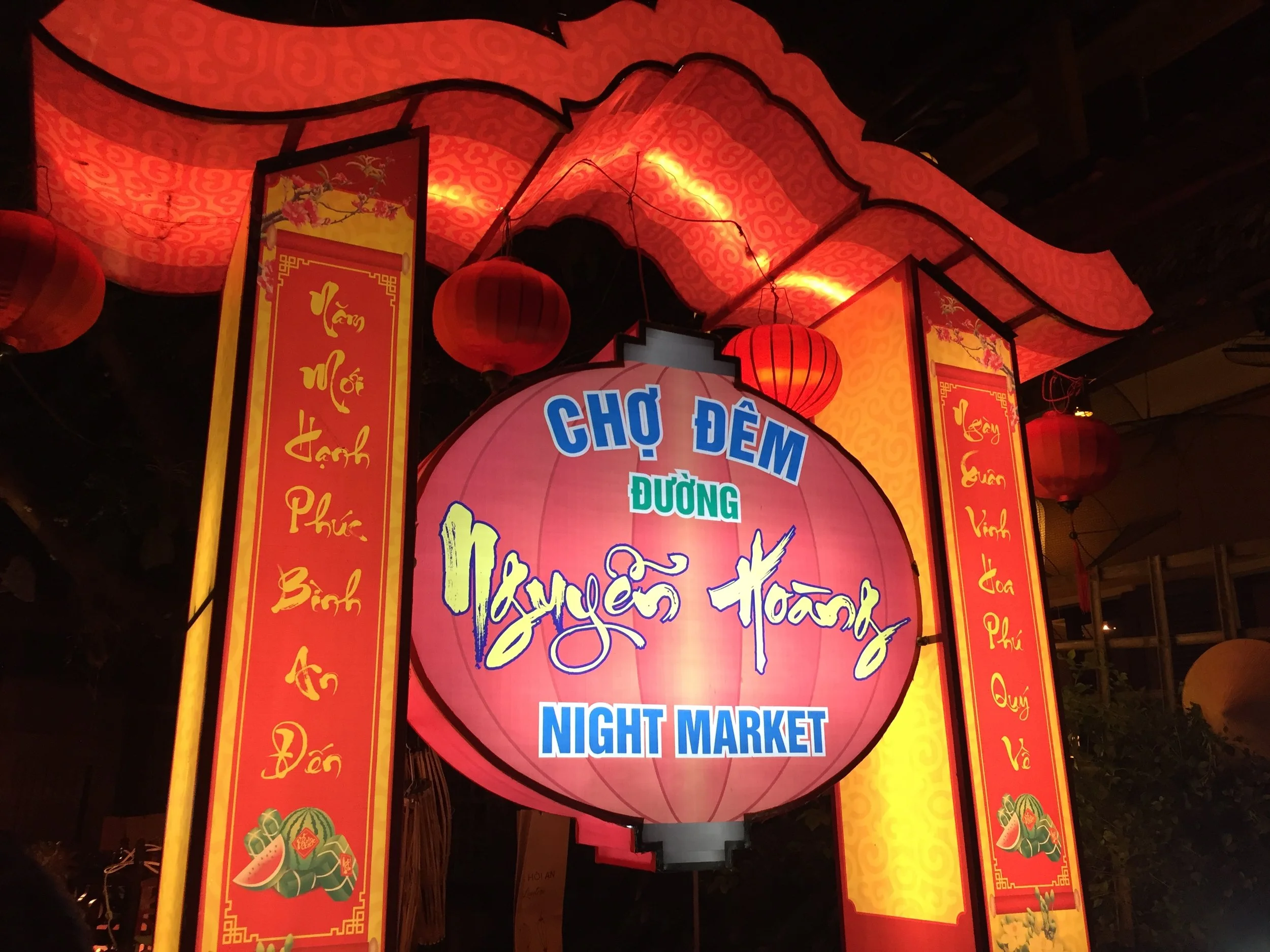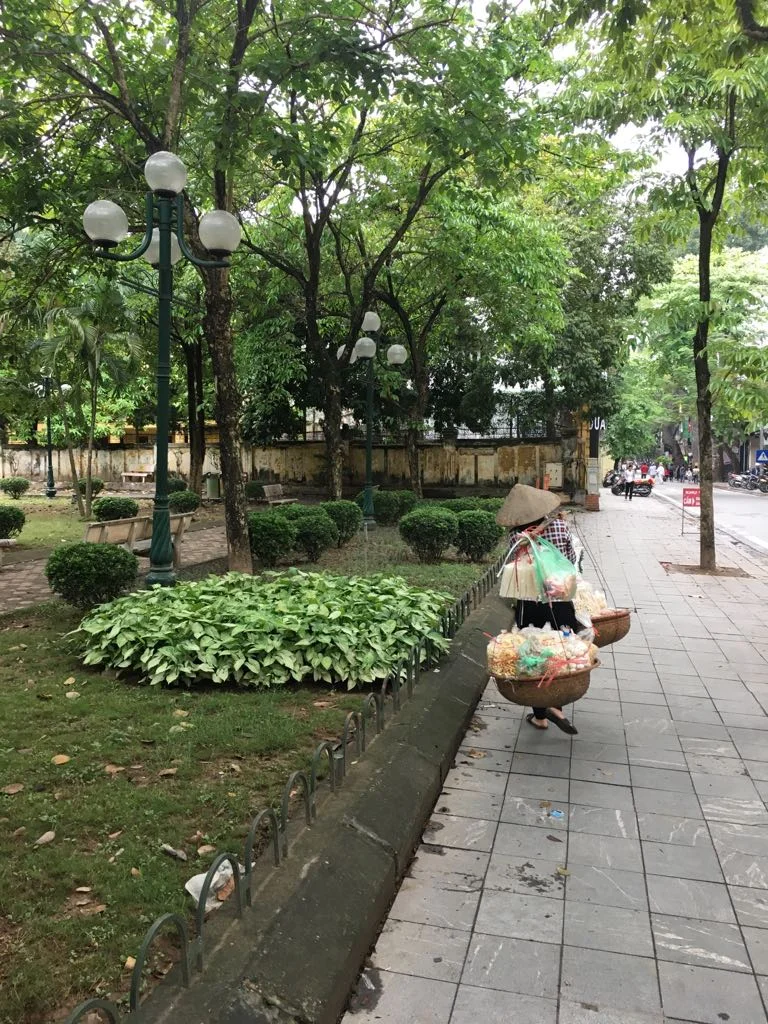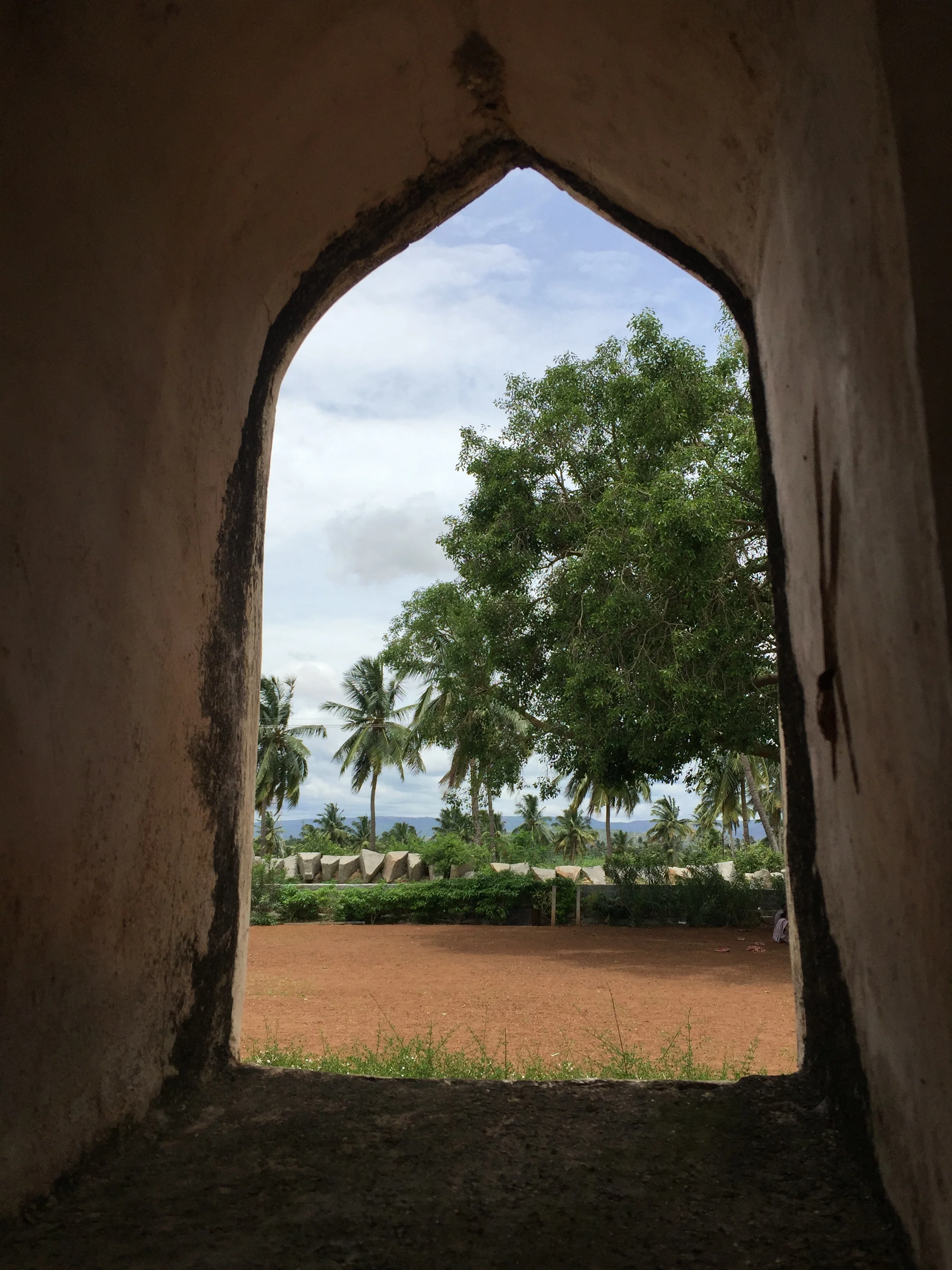Hoi An: A Not-So Hidden Gem
Hoi An was my favorite. Okay, so I've been conveying this sentiment more often than not, but this time really holds true. Hoi An is the gem of Vietnam and should not be missed.
In fact, it was the first time I truly wasn't ready to leave a city. And it wasn't because there was more to see, to do, or to taste. We stayed eight nights, which was ample time to get a feel for the city.
I didn't want to leave because of how I felt during our stay. Every day was so enjoyable, with just enough foreignness to challenge our comfort zones. Hoi An is a charmer.
In a way, Hoi An reminded me of my all time favorite city, Lisbon. It could have been the buildings painted an aesthetically pleasing yellow hue, the kindness of the people, or a general visceral reaction.
It's highly livable and I can see why there's a sizable expat community.
And it wasn't just because of the relaxing atmosphere of the city, heightened by of the ease of getting massages. Admittedly, we liked the adeptly named, Feel Good Spa.
More notably, Hoi An is a former port dating back to the 15th through 19th century. The picturesque streets and canals are well-preserved and indicative of varied global influences.
In 1999, the old town was dubbed a UNESCO World Heritage Site given that it's a prime example of a well-maintained Southeast Asian trading port.
The old town is lined with a Japanese merchant houses and Chinese temples.
As well as a popular attraction, the preserved Japanese covered bridge.
The importance of Asian influences are intertwined with the remnants of French colonial settlers architechural impact.
The pleasantries of of Hoi An are not with sporadic hints of the Vietnam's political leanings.
Similar to the rest of Vietnam, the dominance of the current Communist Party seeps through. It felt jarring at first, until we walked by enough signage to become accustomed to the imagery.
Regardless, the central Vietnamese town has gained notoriety as one of the most desirable tourist destinations in Southeast Asia in recent years.
Tailor shops, swanky hotels, and cocktail bars occupy the main streets. Shop owners solicit tourists to fit custom made clothes. Hoi An is renowned for their tailors, a tradition carried on from the history of being a trading port on the silk route.
But times have changed and we found the banana and watermelon pattern varieties were questionably popular.
The three piece ensemble of 250,000 VND is roughly 11 USD
In contrast to the congestion in old town, the perimeter of old town feels untouched. Or at least more remote in comparison. We stayed in a lovely airbnb in the rice paddies, about a 15 minute walk from old town.
Our balcony overlooked the rice paddies, which were two weeks away from being harvested. It was a quiet oasis from the bustle of the markets.
Will and I took full advantage to our proximity. We'd go on early morning runs, walks at dusk, or bike to the beach.
The middle of Vietnam boasts some of the most alluring landscapes.
And we were treated to a peak in our backyard.
I did enjoy the extensive markets. Hoi An's past as a port and fishing village is still evident. Along with fresh fruit and vegetables, newly caught fish were perpetually on display, both visually and by scent.
At the market, I stuck to snacks such as the prepped fruit and this addictive black sesame peanut brittle on rice paper. Will wasn't a fan of either, but I loved it.
The street food in Hoi An was fantastic. It felt more approachable than Hanoi and we didn't hold back.
Since all the stalls sold the same goods, we wondered how they made a profit. Many were more catered to tourists, such as the banana and mango pancakes. They resembled sweet fried crepes and were delicious right odd the griddle.
For a sit down experience, we enjoyed perusing the Central Market. The stalls sold the same delicacies, tooting authentic Hoi An delicacies. We particularly enjoyed Quan Mrs. Hoa.
You can't really go wrong. For lunch the noodles were fantastic, roughly $2 USD for both dishes.
The following day I had bahn cohn, essentially steamed rice rolls, deemed one of the oldest dishes in Northern Vietnam. It's made from thin, wide rice noodles filled with ground pork, mushrooms, and shallots. The dish is typically accompanied by herbs and sliced cucumbers.
We tried Mrs. Hoa's son's stall next door to try the Vietnamese savory pancake, banh xeo. The English translation means "sizzling cake." It's made of rice flour and turmeric for color and typically filled with shrimp, pork, and bean sprouts. When sitting at the counter, we saw them being made on repeat on a hot wok with an ample amount of oil to yield the crispy exterior. We were told to wrap the pancake in rice paper and add the herbs.
One of my favorite dishes was the white rose, banh bao vac, a local Hoi An specialty. The delicate dumplings are filled with spiced shrimp and pork and bunched to resemble roses. The recipe is a secret, only held by Tran Tuan Ngai and remarkably can't be found elsewhere.
We felt compelled to try the Bahn Mi that Anthony Bourdain ate in Hoi An at Madam Phuong Banh Mi.
We both tried the grilled pork, which was loaded with pate, mayonnaise, coriander, pickled daikon and carrot, and chili sauces. It was indeed that good. And for only $1 USD per sandwich, you can't go wrong.
We spent most of our days exploring the downtown. One day when it was exceptionally hot, we rode bikes to the ocean at 4 p.m. It started to rain as we bike through the rice paddies. It seemed to be after hours, so we threw our things on a beach chair and ran in.
We took a quick dip, before it threatened to become a full blown thunder storm. It was so refreshing.
After barely drying off, we grabbed a sugared donut from one of the stands by the water and biked home.
The end of our visit overlapped with Reunification Day in late April. It marks the fall of the Saigon government in 1975 when Viet Cong and North Vietnamese troops captured Ho Chi Minh City. It ended the Vietnam War and began the process of unifying the North and the South. The holiday is a four day celebration, and because of this, many Vietnamese from surrounding cities came Hoi An on holiday. The influx of people was especially evident at the night market on Nguyen Hoang Street.
Vendors sell trinkets, clothing, and accessories. It's lauded as one of Vietnam's most popular markets as the Thu Bon River and is illuminated by hundreds of colorful lanterns.
We preferred to grab a a few Larue's and people watch. The beer has a monopoly on the city, but at under a dollar per beer, tough to complain. We were frequent customers at 85 Celsius.
It was easy to find a cafe to just be. We also liked the second floor deck at Mia Coffee for smoothies.
I'd be remiss not to mention Will's following reached new heights in Vietnam. The women loved him and literally thought he WAS Obama.
Should we choose not to return to the States, it's clear Will could become famous in Vietnam.
We'll be back to Hoi An regardless. The people were incredibly welcoming and the scenery stunning. It's a place that stays with you.


